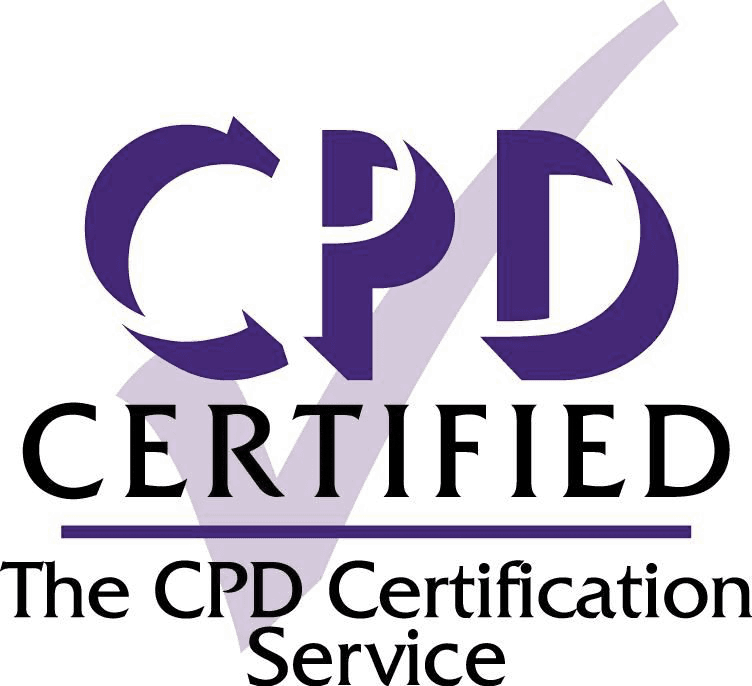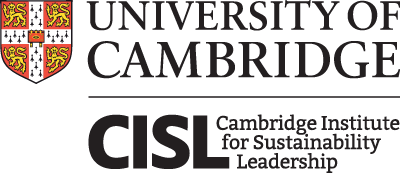
Business and Climate Change: Towards Net Zero Emissions
Online short course
Gain insights into the risks and strategic opportunities presented by climate change, and learn how a transition to net zero emissions can help create a more resilient business model that advances people, profit, and the planet.
8 weeks, excluding 1 week orientation.
7–10 hours of cohort-based learning per week, entirely online.
Email: cambridgecisl@getsmarter.com
Call: +44 1223 790 596
About this course
Once considered a peripheral issue for business, climate change – and our response to it – is increasingly taking centre stage in strategic planning for businesses and organisations. As the physical impact of a changing climate becomes more evident, and public concern and activism intensifies, businesses across sectors are confronted with a growing array of climate-related risks, such as litigation and transition threats. As these risks escalate, they can quickly render a company's physical, human, and intangible assets devalued or stranded, creating a need for a resilient and sustainable business model.
The University of Cambridge Business and Climate Change: Towards Net Zero Emissions online short course gives you a holistic business understanding of how best to mitigate the business risks of climate change and oversee the transition to net zero emissions. Gain the knowledge and skills to combat climate change in your context, and learn to build a business model that is resilient and profitable in the net zero, resource-efficient economy of the 21st century. By aligning financial, environmental and social goals, you’ll enhance the potential longevity of your organisation, and unlock new opportunities for growth and innovation both now and into the future.

This course is certified by the United Kingdom CPD Certification Service, and may be applicable to individuals who are members of, or are associated with, UK-based professional bodies. The course has an estimated 80 hours of learning.
Note: should students wish to claim CPD activity, the onus is upon them. The University of Cambridge Institute for Sustainability Leadership and GetSmarter accept no responsibility, and cannot be held responsible, for the claiming or validation of hours or points.
“In the future, every industry should be an environmental industry. In a world where energy and carbon emissions are constrained, every business must take resource productivity seriously.”
David Miliband
President and CEO, International Rescue Committee
What this course covers
This online short course investigates the business risks and opportunities of climate change from a number of angles. You’ll explore the need to broaden the definition of value to include other forms of capital, the importance of policy and partnership in driving effective change, and the leadership competencies necessary to lead this change.
The course starts with a grounding in how the changing climate impacts business, the vision of a net zero future, and the demand to repurpose the economic system. You’ll discover what it means to collaborate over and lead a transition to net zero emissions, investigate real-world decarbonisation success stories, and explore the role that technological and behavioural innovation and design can play in creating a net zero future. Finally, you’ll uncover your own potential role in leading this transition in an increasingly volatile and disruptive world.
Throughout the course, a combination of up-to-date research, practical examples of successful initiatives, and interactive components will help you apply key insights to your own context.
A powerful collaboration
The University of Cambridge Institute for Sustainability Leadership (CISL) is collaborating with digital education provider GetSmarter to create an interactive and supported learning experience, equipping you to lead with impact in a changing business world.
About CISL
CISL is an institution within the University of Cambridge that strives to challenge, inform and support leaders from business and policy to deliver change towards sustainability.
CISL helps influential individuals, major organisations and whole sectors develop strategies that reconcile profitability and sustainability, and to work collaboratively with their peers not only to develop solutions to shared challenges, but also catalyse real systems change.
Learn more here.

Gain access to the CISL International Alumni Network
The CISL Network is made up of nearly 9,000 senior leaders and leading practitioners who represent business, the public sector and civil society in every industry, on every continent. Upon successful completion of this course, you’ll become an entry-level member of this prestigious global community. This forum includes students from all of CISL’s executive education programmes spanning the past 25 years, alumni of our graduate programmes, members of our business platforms and expert faculty and contributors to our work. Through it, we aim to provide opportunities for members of our Network to keep up to date with the latest thinking and action, the space to debate ideas and share experiences, and the chance to collaborate and influence change.

About GetSmarter
GetSmarter partners with the world's leading universities and institutions to select, design and deliver premium online short courses with a data-driven focus on learning gain.
Technology meets academic rigour in GetSmarter’s people-mediated model, which enables lifelong learners across the globe to obtain industry-relevant skills that are certified by the world’s most reputable academic institutions. GetSmarter is owned by 2U.
As a student of this course, you will also gain unlimited access to edX’s Career Engagement Network at no extra cost. This platform will provide you with valuable career resources and events to support your professional journey. You can look forward to benefits including rich content, career templates, webinars, workshops, career fairs, networking events, panel discussions and exclusive recruitment opportunities to connect you with potential employers.
What you’ll learn
You’ll be welcomed to the course and begin connecting with fellow students, while exploring the navigation and tools of your Online Campus. Be alerted to key milestones in the learning path, and review how your results will be calculated and distributed.
You’ll be required to complete your student profile, confirm your email address for the delivery of your digital certificate and submit a digital copy of your passport/identity document.
Please note that module titles and their contents are subject to change during course development.
Discover the impact and dependencies of climate change on society, the global economy, and your business.
- Demonstrate a basic understanding of climate change and its impact on society, the global economy, and the environment
- Describe why a net zero carbon emissions future is inevitable
- Identify the different sources of greenhouse gas emissions at the sector level
- Outline the effects of climate change that impact your business at the sector level
Reimagine a more prosperous, net zero world and envision the milestones to get there.
- Review how a net zero future can boost prosperity, present new opportunities and achieve climate justice
- Identify the need to repurpose the economy with alternative economic models
- Interpret the implications decoupling has on society, the global economy and the environment
- Articulate the goals that need to be achieved to deliver a net zero future in different sectors
Explore the risks and opportunities as the economic system is repurposed.
- Discuss climate-related risks to companies and the economic system
- Illustrate how tipping points and network effects can influence systemic action and accelerate change
- Analyse the core components of climate transition planning including metrics and targets to assess progress towards net zero
- Investigate the importance of climate-related financial risk disclosure by businesses to their investors, lenders, insurers and other stakeholders
Discover the importance of policy and partnership in moving beyond business as usual.
- Reflect on how long-established practices and beliefs create barriers to the transition
- Describe the role of business in shaping our expectations of the future and applying levers for change
- Evaluate the role of governmental institutions in creating an enabling environment for large-scale climate action
- Assess how individual and collaborative leadership can influence policy, business practices, and collective behaviour
- Analyse your company’s ambition and action for a decarbonisation strategy
Explore examples of success in moving from a carbon-intensive to a net zero economy.
- Describe the success criteria for impactful decarbonisation initiatives in the transition to a net zero economy
- Compare the factors that contribute to the success of decarbonisation initiatives
- Analyse the likely effectiveness of emerging strategies across major sectors
- Articulate the steps businesses can take to build successful decarbonisation initiatives
Understand why net zero innovation requires a shift in how the economy grows.
- Assess the drivers, dimensions and dynamics for net zero innovation business innovation
- Identify the need to shift from the linear economy to the circular economy
- Discuss circular business model innovation as a means to advance decarbonisation
- Evaluate the role individual businesses can play in influencing design and innovation within their sectors
Recognise the leadership competencies required to encourage the advantaged and enable the disadvantaged to benefit from a net zero transition.
- Illustrate the organisational transformation required to become a net zero company
- Analyse the leadership principles, mindset and practices required at an individual and collective level to drive change in business
- Distinguish between advantaged and disadvantaged groups of the global climate change responses
- Reflect on how disadvantaged groups could benefit and thrive from a net zero transition
Describing your role, forecasting barriers, and embracing support for effectively leading a change process.
- Describe your role in driving a transition towards a net zero business in your current and future spheres of influence
- Articulate the current and future barriers or challenges that you expect to encounter in attempting to drive change
- Illustrate the importance of leveraging support and maintaining momentum in the face of potential setbacks
- Identify internal support that can help accelerate your change process
- Investigate support mechanisms beyond your current network to be more effective at facilitating change
- Write a personal action plan to lead the transition towards a net zero future for your organisation or spheres of influence
- Reflect on how your views of a net zero transition have changed
Who should take this course
This course will benefit professionals seeking to upskill themselves in climate change risk, adaptation measures, and areas for innovation.
Those already in or aspiring to be in ‘green collar’ roles such as climate consultants, sustainability specialists, and environmental managers or analysts will gain access to the latest low carbon practises, and find relevant insights into successful climate change mitigation strategies. Individuals working in finance or operations will benefit from an understanding of how their company’s business model might shift to facilitate a transition to net zero emissions, and will uncover opportunities for growth, innovation, and resilience investment. Additionally, senior management and C-suite executives in both the public and private sectors will gain tools for leading change within their organisation, and discover how best to make a net zero future a strategic business priority.
The course will broadly appeal to business leaders across industries, especially those who are responsible for providing strategic direction, building a long-term competitive advantage, and finding new ways of creating value while balancing sustainability and profitability.
This course is for you if you want to:
Enhance your knowledge
Gain real-world insights into the business risks posed by climate change, and the strategic opportunities that may arise from taking action.
Build business value
Explore innovation and design strategies that can enhance organisational resilience and overall business performance.
Lead long-term change
Learn to sustainably and profitably rewire your business model, and drive change toward a net zero future.
About the certificate
Upon successful completion of the course, you’ll earn a digital certificate of completion from a world-leading sustainability institution, the University of Cambridge Institute for Sustainability Leadership (CISL).
Assessment is continuous and based on a series of practical assignments completed online. In order to be issued with your digital certificate of completion, you will need to meet the requirements outlined in the course handbook. The handbook will be made available to you as soon as you begin the course.
Your digital certificate of completion will be issued in your legal name and sent to you via email. All certificate images are for illustrative purposes only and may be subject to change at the discretion of the University.
Who you’ll learn from
These subject matter experts from the University of Cambridge Institute for Sustainability Leadership guide the course design and appear in a number of course videos, along with a variety of industry professionals.
Your Course Convenors

Dimitri Zenghelis
Senior Associate, University of Cambridge Institute for Sustainability Leadership

Martin Roberts
Director of Digital Learning, University of Cambridge Institute for Sustainability Leadership
How you’ll learn
Every course is broken down into manageable, weekly modules, designed to accelerate your learning process through diverse activities:
- Work through your downloadable and online instructional material
- Interact with your peers and learning facilitators through weekly class-wide forums and reviewed small group discussions
- Enjoy a wide range of interactive content, including video lectures, infographics, live polls, and more
- Investigate rich, real-world case studies
- Apply what you learn each week to quizzes and ongoing project submissions, culminating in the knowledge to lead a transition to net zero emissions and rewire your business model for long-term value and resilience
Your success team
GetSmarter, with whom CISL is collaborating to deliver this online course, provides a personalised approach to online education that ensures you’re supported throughout your learning journey.
Head Tutor
A subject expert who will guide you through content-related challenges.
Success Advisor
Your one-on-one support available during University hours (8am–4pm GMT) to resolve technical and administrative challenges.
Global success team
Available 24/7 to solve your tech-related and administrative queries and concerns.
Technical requirements
Basic requirements
In order to complete this course, you’ll need a PDF Reader. You may also need to view Microsoft PowerPoint presentations, as well as read and create documents in Microsoft Word or Excel.
Additional requirements
Some courses may require certain software and resources, which will be communicated to you upon registration and/or at the start of the course. Please note that Google, Vimeo and YouTube may be used in our course delivery.